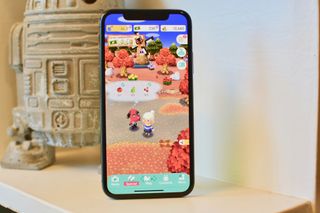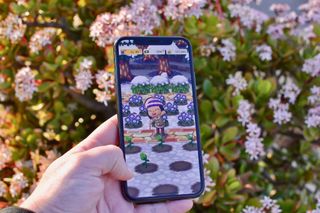
I've been playing Animal Crossing Pocket Camp since the day it launched in the U.S. (actually since a month before that, because I side-loaded it onto an Android device just so I could play it early). It's been a daily source of joy for me. When Sensor Tower released its data that ACPC has hit the $50 million revenue mark, I was happy to hear the news.
Then, the headlines started coming in that it's the slowest revenue earner of Nintendo's mobile games (out of Fire Emblem Heroes, Super Mario Run, and Animal Crossing: Pocket Camp). Well, that appears to be true, but what does that really mean?
Profits for a game may be important to a company, but they are far from important to the people enjoying the game.
In my experience with Animal Crossing: Pocket Camp, it means I'm not being funneled into a situation where I feel compelled to spend real money in order to enjoy the game.
How to make money on a free game: Fire Emblem Heroes
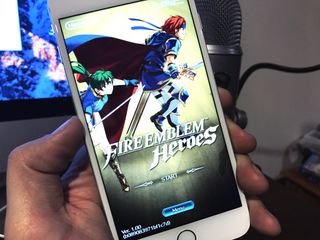
Fire Emblem Heroes (the Nintendo game that made $50 million in just 20 days) uses a stamina-spend system. You can only play for as long as you have enough stamina to continue. If you run out, you have to wait as much as eight hours to fully recover your stamina.
This is a common revenue option that is often used for free-to-play games. It's a great way to invite players to spend real money in order to continue playing a game they are deeply involved in.
Fire Emblem Heroes uses Orbs as its main currency, which is used to summon Heroes, refresh dueling swords, and other actions where you've run out of some action ability and need to replenish. Though Orbs are earned through daily rewards, achievements, and events, summoning heroes costs a lot of orbs, and summoning a hero is important to your ability to win.
Master your iPhone in minutes
iMore offers spot-on advice and guidance from our team of experts, with decades of Apple device experience to lean on. Learn more with iMore!
With this type of pay-to-win content, it's no wonder Fire Emblem Heroes rose to the top of Nintendo's mobile game revenue list.
How to make a game that people love to play: ACPC
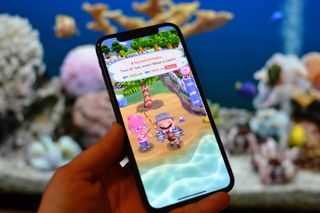
Animal Crossing: Pocket Camp, on the other hand, doesn't use a stamina-based play system at all and there is no "winning." I could play for hours on end if I wanted to, collecting fish and bugs unrestricted. I don't have to be faster or more powerful than any other players.
Animal Crossing: Pocket Camp is designed with lots of reasons you could spend real money, but none of them are reasons you feel like you must spend money in order to enjoy the game.
It's designed to allow players to decide for themselves how much they want to invest. Spending a lot of money on the game doesn't push you to the top of the leader boards or make you level up faster.
Premium currency (Leaf Tickets in ACPC) is used mostly for cosmetic upgrades and toward completing collections of themed furniture and clothing.
Some events are easier to complete if you purchase or rent an item using Leaf Tickets, and that's probably the main way in which gameplay is affected by whether or not you spend real money.
ACPC has its own way of generating revenue but a lot of us ignore it
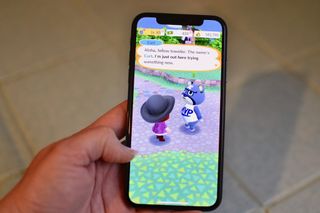
There is one major way in which you could get sucked into spending large amounts of real money in Animal Crossing: Pocket Camp, and that's with premium fortune cookies.
Fortune cookies reward you with themed furniture and are only available for a limited time. If you're a completest, you will have a strong desire to spend money on premium fortune cookies. When the feature first launched, I spent real money for the first and only time.
Fortune cookies, unfortunately, randomly award items, so you may end up with two of the same thing, over and over again. This is where I think Nintendo went wrong. It's a form of gambling where you spend money and risk getting something you don't want with your purchase.
Nintendo could have skyrocketed its revenue if we didn't receive duplicate items from fortune cookies. I would have spent all my money making sure I had every item in a collection.
Instead, I quickly realized that the risk wasn't worth the investment and stopped trying altogether. I know I'm not alone here.
Fast revenue growth doesn't necessarily mean a more popular game
The number of times ACPC has been downloaded, how many people open and play the game daily, or how much time they spend playing the game isn't publicly available, but I have a feeling that the game's popularity isn't something to be dismissed. Sure, Nintendo isn't making as much money from it as from Fire Emblem Heroes, but it's part of a strong community of people that love the characters and are willing to spend a lot of money on things that matter most to us, not just to be able to pay to win.
Lory is a renaissance woman, writing news, reviews, and how-to guides for iMore. She also fancies herself a bit of a rock star in her town and spends too much time reading comic books. If she's not typing away at her keyboard, you can probably find her at Disneyland or watching Star Wars (or both).
Most Popular






